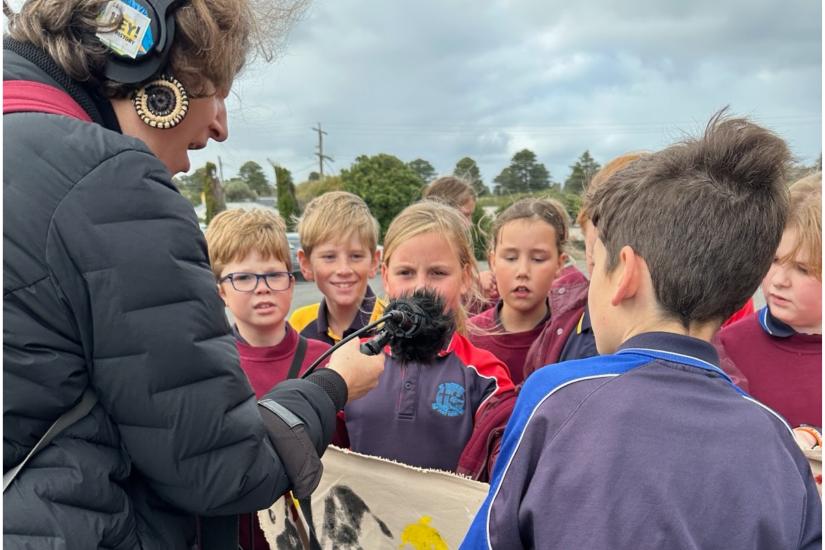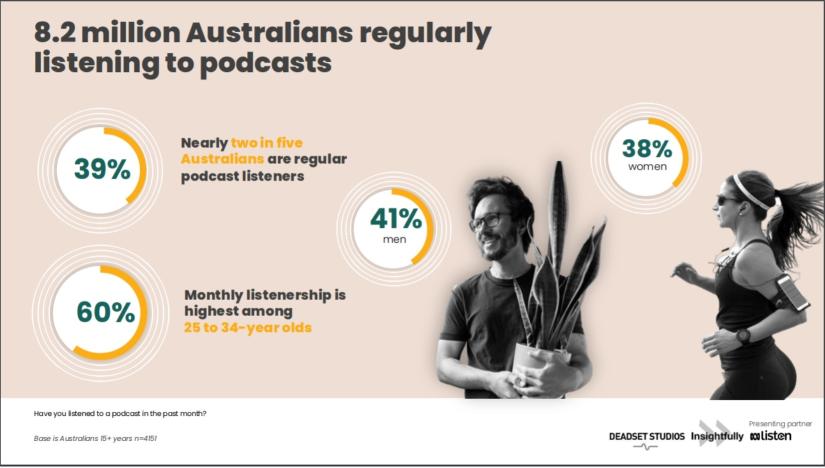In this guest post, Jane Curtis discusses how UTS is amplifying research in NAIDOC Week and asks: how can research help tell important truths in our community?
Truth-telling through podcasts

How can researchers share their work beyond academic journals and conferences? How can storytelling make complex research findings accessible? At UTS, our researchers are finding new ways to share their complex academic work in formats that reach beyond traditional scholarly audiences. And while they’re not without challenges, podcasts are an effective way to do this.
The power of audio storytelling
Podcasts are becoming increasingly popular. Their reach is significant: 43% of Australians tune in to podcasts monthly, surpassing the US's 42% figure, making Australia one of the top countries for podcast consumption globally. One-third of Australians listen to a podcast every week (Infinite Dial Australia Report 2023).

But podcasts do more than just translate research – they humanise it.
Complex historical narratives, policy recommendations and social justice issues become conversations, or sound-rich scenes, that listeners can connect with.
Why podcasts work for truth-telling
For truth-telling specifically, podcasts offer unique advantages.
Podcasts can:
- include multiple voices, including community members, First Nations Knowledge Holders, and researchers
- communicate emotions
- transport listeners into people’s lives through immersive, sound-rich ‘scenes’
- provide context, background, and explain historical, cultural, or social context that makes truth-telling more meaningful, and
- enable respectful pacing, so that listeners can pause, reflect, and return to challenging content at their own pace.
Research in action
UTS Impact Studios has been at the forefront of creating research-based podcasts that demonstrate the truth-telling potential of audio storytelling.
Three podcasts featured in its NAIDOC Week Spotify playlist show how researchers from different fields use podcasts to share their work with wider audiences.

History Lab's Unsettling Portraits brings the research of historians Kate Fullagar and Michael McDonnell to life by examining how colonial portraits shaped our understanding of Indigenous identity. By working with Indigenous scholars, Unsettling Portraits unpacks the complex power dynamics embedded in historical portraiture over three episodes and asks, Do these images reveal more about their Indigenous subjects or the colonial gaze that created them?
Hey History amplifies Australian Centre for Public History Professor Anna Clark's groundbreaking work on history education in schools. Clark's research demonstrates that students can engage with complex historical narratives – including difficult truths about our past – when presented in engaging ways. This research frames the content and approach of the curriculum-aligned podcast, which builds ‘truth-telling questions’ into every episode, like “Is there another side to the story?”
The most recent episode Walking for Truth explicitly focuses on truth-telling. It explains the work of the Yoorrook Justice Commission, Australia’s first formal truth-telling process, for an 8-12 year old audience. (But give it a listen, it’s engaging for adults too!)
History Lab’s The Last Outlaws showcases how deep academic research can be transformed into award-winning public engagement. Based on UTS Law's Katherine Biber's extensive research, the podcast won the 2022 Australian Podcast of the Year and the Digital History Prize at the NSW Premier's History Awards. The podcast's success not only amplified Biber's scholarly work but also led to her research being published as a book by Simon & Schuster.
The researcher's opportunity
Researchers across all fields have an important role in documenting and sharing truth-telling work. For researchers wanting to reach more people with their work, podcasts offer a direct path to broader audiences. When truth-telling matters more than ever, podcasts can be a useful way to create real-world impact.
Explore our NAIDOC Week podcast playlist and discover how UTS researchers are using audio storytelling to amplify their work and contribute to important conversations about our past, present, and future. Learn more about UTS Impact Studios.